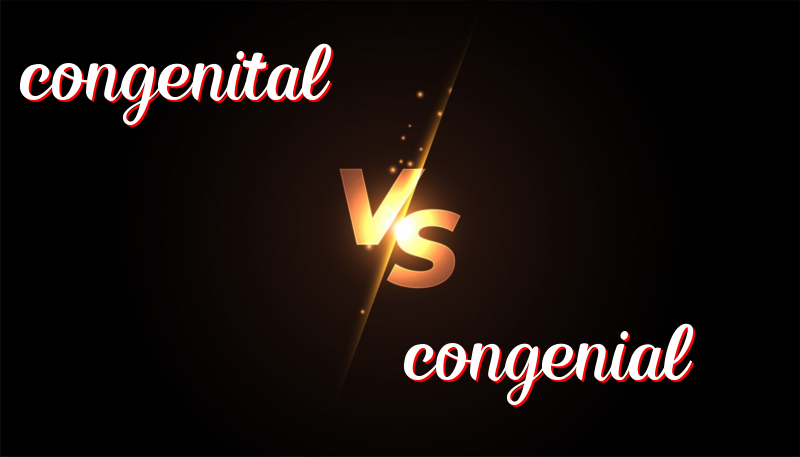英語單詞congenital 與 congenial的區別
October 18, 2024
區分 “Congenital” 與 “Congenial” 的差異
詞源及歷史背景
“Congenital” 來源於拉丁文 “congenitus”,意指 “與生俱來的”。這個單字通常被用來描述自出生便擁有的特質或狀況。
“Congenial” 則源自於拉丁文 “congenialis”,其組成來自 “con-” (共同) 和 “genialis” (天性),意在形容一個人或環境是令人愉快、舒適或氣味相投的。
如何使用這些詞彙
“Congenital” 通常用於醫學或科學領域,描述一種自出生就有的狀況或特徵。例如:先天性心臟病。在形容人的性格時則較少使用。
“Congenial” 多用於指人際關係或環境的和諧。這個詞表現出一種令人愉悅、適合或友善的氛圍。
記憶差異的方法
要記住這兩者的差異,可以這樣思考: “Congenital”(與生俱來) 和 “唇”音接近,而先天性是生命一開始就有的;而 “Congenial”(友好的) 與 “愉悅”是心靈的相互契合,可以聯想到”溫暖的”或”合拍的”人際互動。
“Congenital” 的例句
- He has a congenital heart defect that has required several surgeries.
他有先天性心臟缺陷,需要多次手術。 - The congenital disorder affected her movement from birth.
這種先天性疾病從出生就影響了她的運動能力。 - Congenital abnormalities are often detected during prenatal check-ups.
先天性畸形常在產前檢查中發現。 - His talent for music seems almost congenital, as he has been playing since he was a toddler.
他的音樂天賦似乎與生俱來,因為他從小就開始演奏。 - The doctors diagnosed him with a congenital condition that needs regular monitoring.
醫生診斷出他有一種需要定期監控的先天性病症。
“Congenial” 的例句
- The cafe has a congenial atmosphere that makes it perfect for study sessions.
這家咖啡館有著愉悅的氛圍,十分適合讀書聚會。 - She found the people in the new office to be congenial and welcoming.
她發現新辦公室的人既友好又好客。 - James is a congenial host, always ensuring his guests are comfortable.
詹姆斯是一位友好的主人,總是確保他的客人感到舒適。 - We spent a delightful evening with our congenial neighbors.
我們和友善的鄰居度過了一個愉快的夜晚。 - The team’s congenial spirit contributed to their success in the project.
團隊和諧的精神為他們的項目成功做出了貢獻。
使用的總結
簡而言之,”Congenital” 是用來描述自出生便存在的特徵或病症,而 “Congenial” 則是形容人際或環境的友善與和諧。這兩個詞在發音和拼寫上雖然相似,但意義和使用的背景差異甚大。

Leave a Reply
You must be logged in to post a comment.